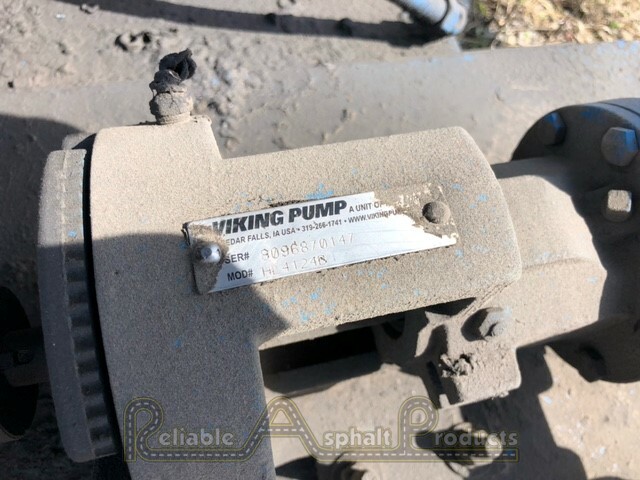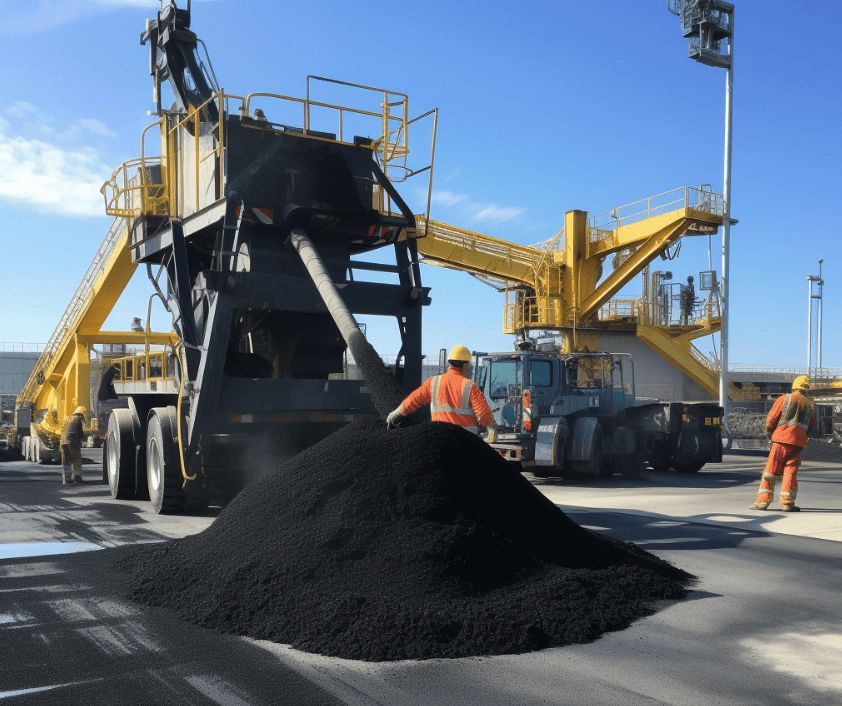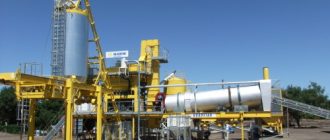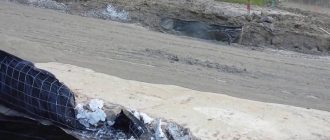What is Anti-Strip for Asphalt?
Asphalt is a commonly used material in the construction industry for its durability and versatility. However, one of the drawbacks of asphalt is its susceptibility to stripping, a phenomenon where the bond between the asphalt binder and the aggregates is weakened or broken. This can lead to various problems, such as reduced pavement performance, rutting, and cracking.
To combat this issue, the use of anti-strip additives has become increasingly popular. Anti-strip is a chemical agent that is added to asphalt mixtures to enhance the bonding between the binder and the aggregates. It works by reducing the surface tension of the binder, allowing it to more effectively coat and adhere to the aggregates. This results in improved resistance to moisture damage and improved overall performance of the asphalt pavement.
So, what are the benefits of using anti-strip for asphalt? Firstly, it helps to significantly reduce the likelihood of stripping occurring in the pavement. By improving the bond between the binder and aggregates, anti-strip additives can prevent the formation of voids and air pockets, which are often the root cause of stripping. This leads to a longer-lasting and more durable pavement that requires less maintenance and repair.
Additionally, anti-strip can enhance the workability and handling characteristics of the asphalt mixture. It can improve the coating ability of the binder, resulting in a smoother and more uniform application of the mixture. This makes the paving process more efficient and reduces the risk of segregation, which can negatively impact the quality and performance of the pavement.
In conclusion, the use of anti-strip additives for asphalt provides numerous benefits. It improves the bonding between the asphalt binder and aggregates, reduces the risk of stripping, enhances the overall performance of the pavement, and improves workability and handling. By incorporating anti-strip into asphalt mixtures, contractors and engineers can ensure the longevity and durability of their pavement projects.
What is Anti-Strip for Asphalt?
Anti-strip is a term used in the asphalt industry to refer to a type of additive that is used to improve the adhesion between asphalt and aggregate. It is also commonly known as anti-stripping agent or asphalt antistripping agent. The term “strip” refers to the separation or stripping of asphalt from the aggregate surface, which can lead to pavement failure.
The purpose of anti-strip for asphalt is to enhance the bonding between the asphalt binder and the aggregate, preventing stripping. This helps to ensure that the asphalt mixture remains intact and provides strong and durable pavements.
Anti-strip additives are typically chemicals that are added to the asphalt mix during the production process. These additives work by promoting adhesion between the asphalt binder and the aggregate, improving the resistance to moisture damage and stripping.
In addition to improving adhesion, anti-strip for asphalt can also enhance the overall performance of the pavement. It helps to resist moisture damage, reduce the formation of cracks, and increase the lifespan of the asphalt pavement.
There are various types of anti-strip additives available in the market, including organic compounds, polymers, and chemical agents. The selection of the appropriate anti-strip additive depends on the specific requirements of the project and the climate conditions.
Overall, anti-strip for asphalt plays a crucial role in ensuring the longevity and quality of asphalt pavements by preventing the stripping of asphalt from the aggregate surface. It is an essential component in asphalt production and helps to create durable, safe, and long-lasting roadways.
The Importance of Anti-Strip
Asphalt is a widely used material in the construction industry, particularly for road surfaces. It provides a smooth and durable surface that can withstand heavy traffic and the elements. However, one of the challenges of using asphalt is the potential for stripping, which can compromise its performance and longevity.
What is strip?
Strip is the separation of the asphalt binder from the aggregate in the pavement mix. This can occur due to a lack of adhesive properties between the asphalt binder and the aggregate, which can result in reduced strength, increased rutting and cracking, and decreased resistance to water and moisture damage.
What is anti-strip?
Anti-strip is an additive that is mixed with the asphalt binder to improve its adhesive properties and prevent stripping. It enhances the bond between the asphalt binder and the aggregate, ensuring that the pavement mix remains intact and resilient under heavy load and traffic conditions.
The benefits of anti-strip:
- Improved performance: Anti-strip helps to enhance the durability and stability of the asphalt pavement, reducing the risk of rutting, cracking, and other forms of distress. This improves the overall performance of the pavement and extends its service life.
- Increased safety: By preventing stripping and maintaining the bond between the asphalt binder and the aggregate, anti-strip helps to ensure a smooth and safe road surface. This reduces the risk of accidents and improves driver comfort.
- Cost savings: The use of anti-strip can result in cost savings in terms of maintenance and repairs. By preventing stripping and associated pavement damage, it reduces the need for frequent repairs and extends the time between maintenance activities.
- Environmental benefits: Anti-strip can also have environmental benefits. By improving the performance and durability of the asphalt pavement, it reduces the need for new construction, minimizing the use of raw materials and energy.
In conclusion, anti-strip is a vital component in asphalt pavement mixtures. Its use improves the performance, safety, and durability of the pavement while providing cost savings and environmental benefits. By preventing strip, anti-strip helps to maintain the integrity of the asphalt pavement, ensuring a smooth and reliable road surface for years to come.
Benefits of Anti-Strip
An anti-strip, also known as an anti-stripping agent, is a chemical additive that is used in asphalt to prevent the loss of adhesion between the asphalt binder and the aggregate. This loss of adhesion, known as stripping, can lead to the premature failure of paved surfaces.
But what exactly is stripping in asphalt? It occurs when water or moisture infiltrates the asphalt mixture, causing the binder to separate from the aggregate. This can happen due to a number of factors, including poor aggregate quality, high moisture content, or inadequate mixing and compaction of the asphalt.
An anti-strip is added to the asphalt mixture during the mixing process to improve the adhesion between the binder and aggregate. The benefits of using an anti-strip include:
- Improved durability: By preventing stripping, an anti-strip helps to ensure that the asphalt pavement remains intact and durable for a longer period of time.
- Reduced maintenance: By minimizing the risk of premature failure, an anti-strip can help to reduce the need for costly repairs and maintenance of asphalt surfaces.
- Increased skid resistance: Stripping can decrease the skid resistance of asphalt surfaces, making them more slippery and dangerous. By preventing stripping, an anti-strip helps to maintain or even improve the skid resistance of the pavement.
- Enhanced resistance to moisture damage: An anti-strip can help to protect the asphalt mixture from the detrimental effects of moisture infiltration, such as rutting, cracking, and pothole formation.
- Improved workability: In addition to its adhesive properties, an anti-strip can also improve the workability and performance of the asphalt mixture during mixing, placement, and compaction.
In conclusion, the use of an anti-strip in asphalt can provide numerous benefits, including improved durability, reduced maintenance, increased skid resistance, enhanced resistance to moisture damage, and improved workability. By preventing stripping, an anti-strip helps to ensure that the asphalt pavement remains intact and performs optimally for its intended lifespan.
Improved Adhesion
The use of anti-strip additives is crucial for improving the adhesion between asphalt and aggregate. Anti-strip additives are chemical compounds that are specifically designed to enhance the bonding properties of asphalt and prevent the stripping phenomenon.
Stripping, also known as moisture damage, occurs when water penetrates the asphalt mixture, causing it to lose its adhesion to the aggregate. This can lead to a variety of problems, including reduced pavement durability, rutting, cracking, and potholes. To mitigate these issues, anti-strip additives are used to improve the asphalt’s ability to resist moisture damage and maintain its adhesion to the aggregate.
One of the key benefits of using anti-strip additives is the improved bond strength between the asphalt and aggregate. These additives work by chemically modifying the asphalt binder, making it more resistant to water infiltration and improving its adhesion to the aggregate particles.
By enhancing the adhesion of asphalt and aggregate, anti-strip additives help to ensure the longevity and performance of asphalt pavements. With improved adhesion, the asphalt pavement is better able to withstand heavy traffic loads, extreme weather conditions, and prolonged exposure to moisture.
In addition to improved adhesion, anti-strip additives also contribute to the overall durability of asphalt pavements. By reducing the potential for moisture damage and maintaining the integrity of the asphalt-aggregate bond, these additives help to minimize the occurrence of distresses such as raveling, cracking, and rutting.
To summarize, the use of anti-strip additives is essential for enhancing the adhesion between asphalt and aggregate. These additives improve the bond strength, durability, and performance of asphalt pavements, making them more resilient to moisture damage and other distresses. Proper application of anti-strip additives is crucial in achieving long-lasting and high-performing asphalt pavements.
Enhanced Durability
The use of anti-strip additives for asphalt has been proven to greatly enhance the durability of the road surface. Anti-strip additives are specifically formulated substances that help prevent the stripping of asphalt binder from aggregates. This can occur when water or moisture gets trapped between the asphalt binder and aggregates, causing them to separate, leading to a weakened road surface.
By using anti-strip additives, the adhesion between the asphalt binder and aggregates is improved, ensuring a stronger bond. This helps to prevent moisture from penetrating the asphalt mix, reducing the likelihood of stripping and increasing the overall durability of the pavement.
Furthermore, anti-strip additives can also enhance the resistance of asphalt pavements to various forms of distress, such as cracking and rutting. The enhanced durability provided by these additives helps to extend the lifespan of the road, reducing the need for frequent repairs and maintenance.
Overall, the use of anti-strip additives is essential for ensuring the long-term durability of asphalt pavements. By preventing the stripping of asphalt binder from aggregates and improving the bond between the two, these additives help to create a stronger and more resilient road surface that can withstand the effects of traffic, weather, and other environmental factors.
Increased Resistance to Water Damage
Water damage is a common issue that can greatly impact the performance and longevity of asphalt pavements. When water penetrates the surface of asphalt, it can lead to various problems such as cracking, potholes, and deterioration. To mitigate these issues and enhance the durability of the asphalt, the application of an anti-strip agent is essential.
What is an anti-strip for asphalt? It is a chemical additive specifically designed to improve the adhesion between asphalt binder and aggregate, preventing the stripping or separation of the binder from the aggregate surface. By enhancing the bond between these components, the anti-strip agent helps to increase the resistance to water damage in asphalt pavements.
The use of anti-strip agents provides numerous benefits in terms of water damage resistance:
- Reduced moisture susceptibility: Anti-strip additives act as a barrier against moisture, preventing it from seeping into the asphalt mixture. This reduces the chances of moisture-related damage, such as cracking and rutting.
- Enhanced durability: By improving the adhesion between the binder and aggregate, the anti-strip agent helps to maintain the structural integrity of the asphalt. This enables the pavement to withstand the detrimental effects of water, including freeze-thaw cycles and oxidation.
- Prolonged pavement life: Asphalt pavements treated with anti-strip agents have a longer lifespan compared to untreated surfaces. The increased resistance to water damage helps to prevent premature pavement failure, resulting in cost savings for maintenance and repairs.
In conclusion, the application of anti-strip agents in asphalt pavements provides increased resistance to water damage. By improving the bond between the binder and aggregate, these additives help to mitigate the detrimental effects of moisture, enhance durability, and prolong the lifespan of the pavement.
Reduced Rutting
Rutting is a common issue with asphalt pavements. It refers to the permanent deformation and indentation that occurs on the surface of a road due to the weight of vehicles and the repeated traffic load. This can cause significant damage to the road and reduce its lifespan.
Anti-strip additives are used to reduce the occurrence of rutting in asphalt pavements. These additives improve the adhesion between the asphalt binder and the aggregate, preventing the stripping of the asphalt film from the aggregate surface. This enhanced adhesion helps the asphalt pavement withstand the stress and strain caused by heavy traffic load, reducing the potential for rutting.
By using anti-strip additives, the asphalt pavement becomes more resistant to deformation and can maintain its integrity under heavy traffic conditions. This leads to a longer lifespan for the road, reducing the need for frequent repairs and maintenance.
Furthermore, reduced rutting also improves the safety of the road. With less deformation on the surface, vehicles can have better traction and stability, reducing the risk of accidents and improving overall road performance.
Benefits of Reduced Rutting with Anti-strip Additives
|
Overall, the use of anti-strip additives for asphalt can contribute to reduced rutting, leading to longer-lasting and safer roads.
Extended Pavement Life
One of the primary benefits of using anti-strip additives for asphalt is the potential for extending the pavement life.
Asphalt is a commonly used material for constructing roadways and pavements due to its durability and ability to withstand heavy traffic and harsh weather conditions. However, over time, exposure to moisture can weaken the adhesive bonds between the asphalt binder and the aggregate, leading to a phenomenon known as stripping. Stripping compromises the structural integrity of the pavement and can result in the formation of potholes, cracks, and other forms of pavement distress.
Anti-strip additives are specially formulated chemicals added to asphalt mixtures to enhance the adhesion between the asphalt binder and the aggregate. These additives work by promoting chemical reactions that improve the bonding properties of the asphalt, making it more resistant to moisture-induced stripping.
By minimizing stripping, anti-strip additives help to prolong the life of the pavement. This means that roads and pavements treated with anti-strip additives may require less frequent maintenance and repairs, resulting in significant cost savings over time. Additionally, the extended pavement life provided by anti-strip additives contributes to safer and smoother driving conditions for motorists.
- Increased Durability: Anti-strip additives improve the durability of the asphalt by preventing the loss of adhesion between the binder and the aggregate, reducing the occurrence of pavement distress such as potholes and cracks.
- Improved Resistance to Weathering: The enhanced bonding properties of the asphalt due to anti-strip additives help to resist the damaging effects of moisture, UV radiation, and other environmental factors, leading to a longer-lasting pavement.
- Reduced Maintenance Costs: With prolonged pavement life, the need for frequent repairs and maintenance is reduced, resulting in cost savings for both authorities responsible for maintaining the roads and taxpayers.
- Enhanced Safety: Pavements treated with anti-strip additives provide safer driving conditions by minimizing the formation of potholes and cracks, reducing the risk of accidents and vehicle damage.
In conclusion, the use of anti-strip additives for asphalt can significantly extend the pavement life by improving the adhesion between the binder and the aggregate. This leads to increased durability, improved resistance to weathering, reduced maintenance costs, and enhanced safety for motorists. Incorporating anti-strip additives into asphalt mixtures is a proactive approach to preserving and maximizing the lifespan of roadways and pavements.
Uses of Anti-Strip
One of the main uses of anti-strip is to prevent stripping in asphalt pavements. Stripping occurs when there is a failure of the adhesion between the asphalt binder and the aggregate, resulting in the loss of strength in the pavement.
Anti-strip is a chemical additive that is used to enhance the adhesion between the asphalt binder and the aggregate, thereby reducing or preventing stripping. It works by modifying the surface of the aggregate and creating a stronger bond with the asphalt binder.
Anti-strip is typically used during the asphalt mixing process, where it is added to the asphalt binder before it is mixed with the aggregate. It can also be added to the aggregate during the hot-mix process, or it can be applied directly to the pavement surface in the form of a spray or emulsion.
Anti-strip is commonly used in both new construction and pavement maintenance projects. It is particularly beneficial in regions with high moisture levels, as moisture can greatly increase the risk of stripping.
Some of the main benefits of using anti-strip include:
- Improved adhesion: Anti-strip enhances the adhesion between the asphalt binder and the aggregate, resulting in a stronger and more durable pavement.
- Reduced stripping: By preventing or reducing stripping, anti-strip helps extend the lifespan of the pavement and reduces the need for costly repairs.
- Increased resistance to moisture: Anti-strip helps protect the pavement from the damaging effects of moisture, which can weaken the bond between the asphalt binder and the aggregate.
In conclusion, anti-strip is a valuable tool in the asphalt industry for preventing stripping and improving the overall performance and longevity of asphalt pavements. Its use can greatly benefit both new construction and pavement maintenance projects, particularly in areas with high moisture levels.
Road Construction
When it comes to road construction, one of the important considerations is the use of anti-strip for asphalt. Anti-strip is a highly effective additive that helps to protect asphalt from moisture damage and ensures better bonding between asphalt and aggregates.
But what exactly is asphalt? Asphalt is a mixture of various aggregates like gravel, sand, and crushed stone, along with a binder called bitumen. It is widely used in road construction due to its durability and ability to withstand heavy traffic loads.
However, one of the challenges with asphalt is its susceptibility to moisture damage. This occurs when water penetrates the asphalt layer, causing it to weaken and deteriorate over time. Moisture damage can lead to stripping, which is the separation of asphalt and aggregates, resulting in the formation of potholes and cracks.
To prevent moisture damage and stripping, anti-strip additives are used during the production of asphalt. These additives improve the adhesion between the binder and aggregates, making the asphalt more resistant to moisture. They also enhance the long-term durability and performance of the road surface.
Anti-strip additives can be classified into two types: chemical and physical. Chemical anti-strip additives work by modifying the surface properties of aggregates and improving the bond between asphalt and aggregates. Physical anti-strip additives, on the other hand, form a physical barrier that prevents water from entering the asphalt layer.
Overall, the use of anti-strip for asphalt in road construction is crucial for ensuring the longevity and performance of roads. It helps in preventing moisture damage, reducing the need for costly repairs, and extending the service life of the road surface. With the incorporation of anti-strip additives, roads are able to withstand heavy traffic loads, resist stripping, and provide a safe and smooth driving experience for motorists.
Asphalt Pavement Maintenance
Asphalt pavement is a popular choice for roads, parking lots, and driveways due to its durability and cost-effectiveness. However, it requires regular maintenance to ensure its longevity and performance. Proper maintenance can help extend the life of the pavement and prevent costly repairs.
One important aspect of asphalt pavement maintenance is the use of anti-strip additives. These additives are specifically designed to improve the adhesion between asphalt and water. As water can weaken the asphalt binder, leading to stripping and premature pavement failure, anti-strip additives play a crucial role in preventing this issue.
So, what exactly is anti-strip for asphalt? Anti-strip additives are chemicals that can be added to asphalt mixtures to enhance their resistance to moisture and improve their bonding properties. They work by reducing the surface tension of water, allowing it to bond more effectively with the asphalt binder. This helps prevent the stripping of the asphalt binder from the aggregate, ensuring a stronger and more durable pavement.
Anti-strip additives are typically used in asphalt mixtures during the production process. They are mixed with the liquid asphalt binder before it is combined with the aggregates. The additives can be either organic or inorganic compounds, and their effectiveness depends on factors such as the type and quality of the asphalt binder, the aggregate characteristics, and the environmental conditions.
Regular application of anti-strip additives during asphalt pavement construction can provide several benefits. These include:
- Improved bonding: Anti-strip additives enhance the interaction between asphalt and aggregate, resulting in better bonding. This helps prevent moisture-related issues such as stripping and rutting.
- Increased durability: By improving the adhesion of the asphalt binder, anti-strip additives contribute to a more durable pavement that can withstand heavy traffic and harsh weather conditions.
- Reduced maintenance: Properly designed and constructed asphalt pavements with the use of anti-strip additives require less frequent maintenance and repair, reducing long-term costs.
- Enhanced safety: Well-maintained asphalt pavements with good adhesion properties provide better skid resistance, reducing the risk of accidents and improving road safety.
In summary, asphalt pavement maintenance is essential to ensure its longevity and performance. The use of anti-strip additives is one important aspect of this maintenance. These additives improve the adhesion between asphalt and aggregate, resulting in a stronger and more durable pavement that can withstand the effects of moisture and heavy traffic. By reducing stripping and enhancing bonding properties, anti-strip additives help protect the investment in asphalt pavements and ensure safe and reliable transportation infrastructure.
Airport Runway Construction
An airport runway is a strip of land specifically constructed for the takeoff and landing of aircraft. It serves as the main operational area of an airport and plays a crucial role in ensuring the safety and efficiency of flight operations.
Construction of an airport runway involves various stages and requires meticulous planning, engineering expertise, and the use of specialized materials and equipment. One important component of runway construction is the application of anti-strip agents.
What are anti-strip agents?
Anti-strip agents, also known as asphalt anti-stripping agents, are chemical additives used to enhance the adhesion between asphalt binder and aggregate in asphalt mixtures. They are specifically designed to prevent moisture damage that can occur when water seeps into asphalt pavements, causing the binder to lose its adhesive properties.
Why are anti-strip agents important for airport runway construction?
Airport runways are subject to heavy usage and extreme weather conditions, making them more prone to moisture-related issues. When moisture penetrates the asphalt pavement, it can weaken the bond between the binder and aggregate, leading to asphalt pavement distresses such as raveling, cracking, and rutting.
By using anti-strip agents during runway construction, the risk of moisture-related damage can be significantly reduced. These agents improve the adhesion between the binder and aggregate, ensuring the durability and longevity of the runway pavement.
Is anti-strip necessary for all airport runway projects?
While the use of anti-strip agents is highly recommended for airport runway construction, its necessity may vary depending on the specific project and location. Factors such as the climate, aggregate properties, and anticipated traffic volume should be considered when determining the need for anti-strip agents. Consulting with asphalt pavement experts and conducting comprehensive testing can help in making informed decisions regarding their use.
Conclusion
Airport runway construction is a complex process that requires careful attention to detail. The use of anti-strip agents is an important component of runway construction, as it helps prevent moisture damage and ensures the long-term performance of the pavement. By incorporating anti-strip agents into the construction process, airport authorities can ensure safer and more durable runways for aircraft operations.
Q&A:
What is anti-strip for asphalt?
Anti-strip for asphalt is a chemical additive that is used to improve the adhesion between asphalt and aggregates, preventing moisture damage and increasing the overall durability of the pavement.
How does anti-strip work?
Anti-strip works by chemically modifying the asphalt binder, making it more compatible with the aggregates. This chemical modification creates a stronger bond between the asphalt and aggregates, reducing the risk of moisture damage and improving the overall performance of the asphalt pavement.
What are the benefits of using anti-strip for asphalt?
Using anti-strip for asphalt offers several benefits. It helps prevent moisture damage, such as stripping and raveling, which can significantly reduce the lifespan of the pavement. It also enhances the adhesion between the asphalt and aggregates, leading to better pavement performance and longer-lasting roads. Additionally, anti-strip can reduce maintenance costs by minimizing the need for repairs and resurfacing.
Are there different types of anti-strip for asphalt?
Yes, there are different types of anti-strip for asphalt available on the market. They vary in terms of chemical composition and performance characteristics. Some anti-strip additives are designed specifically for use with certain types of aggregates or asphalt binders. It is important to choose the right type of anti-strip for the specific project requirements to achieve the best results.
How is anti-strip for asphalt applied?

Anti-strip for asphalt is typically added to the asphalt binder during the mixing process at the asphalt plant. It is commonly delivered in liquid form and mixed with the binder either in a batch or continuous mixing plant. The dosage of anti-strip may vary depending on factors such as the type of anti-strip used, asphalt binder properties, and project specifications.
What is anti-strip for asphalt?
Anti-strip for asphalt is a chemical additive used during the asphalt production process to improve the adhesion between the asphalt binder and the aggregate. It helps prevent the stripping or separation of the asphalt from the aggregate, which can lead to pavement failure.







